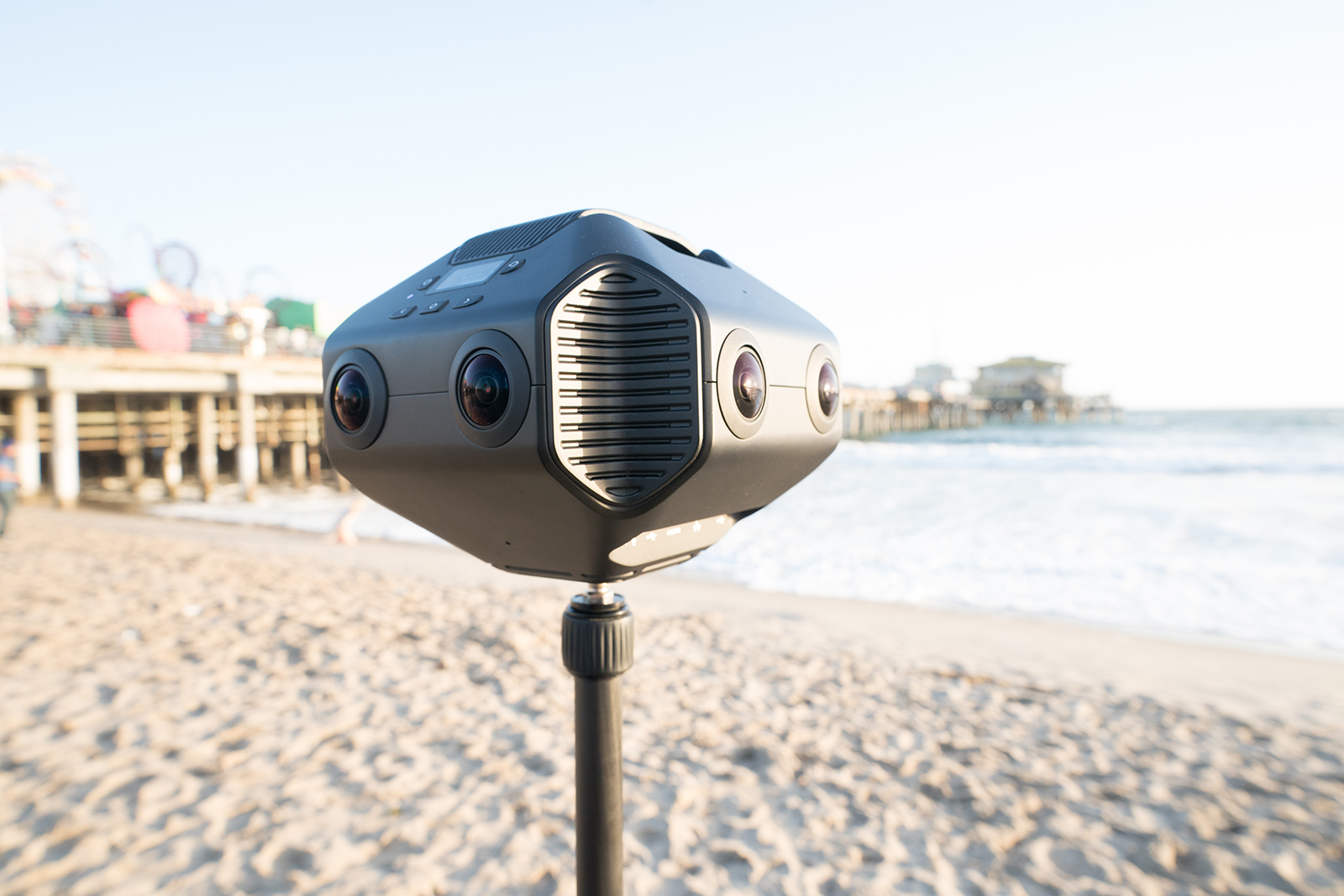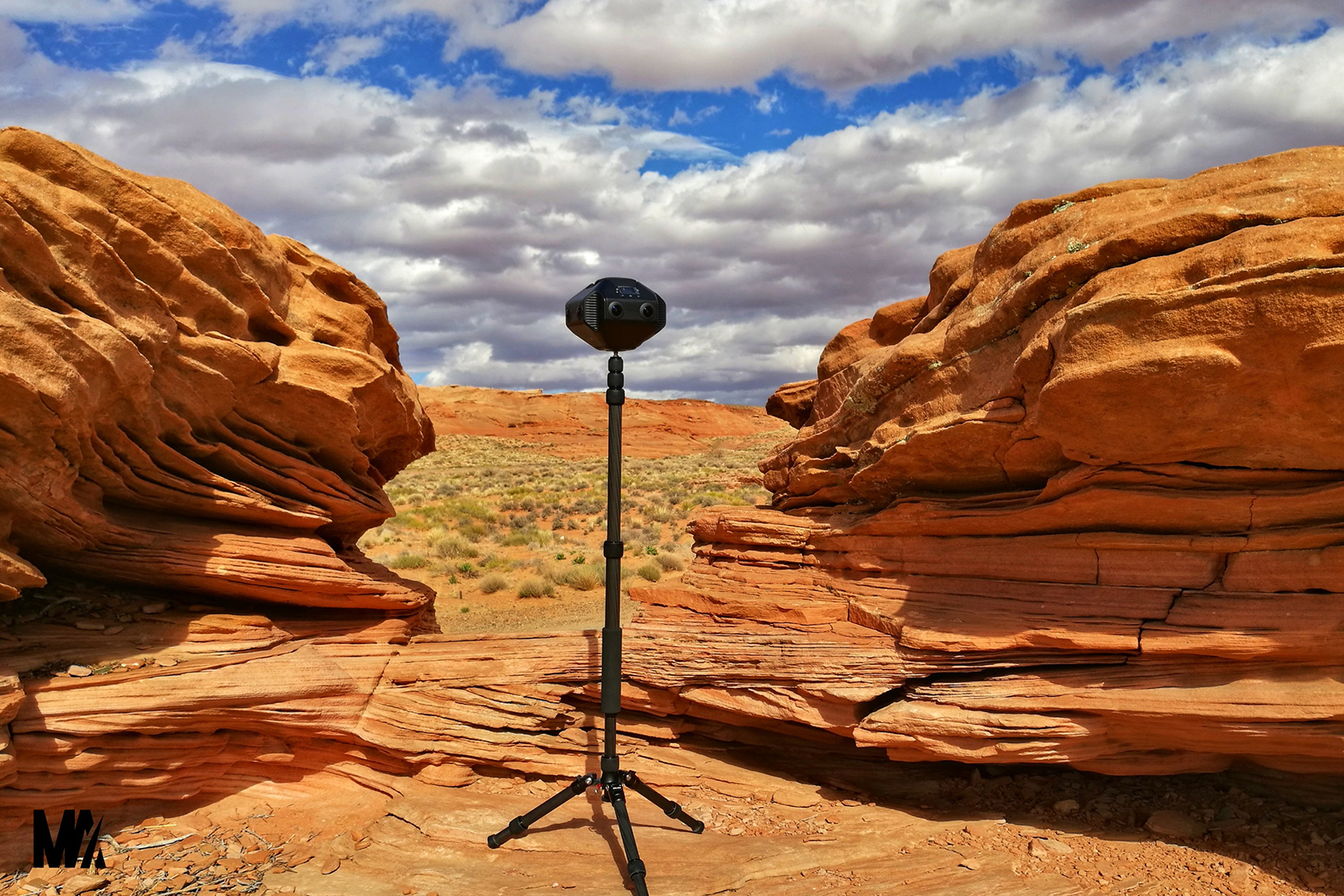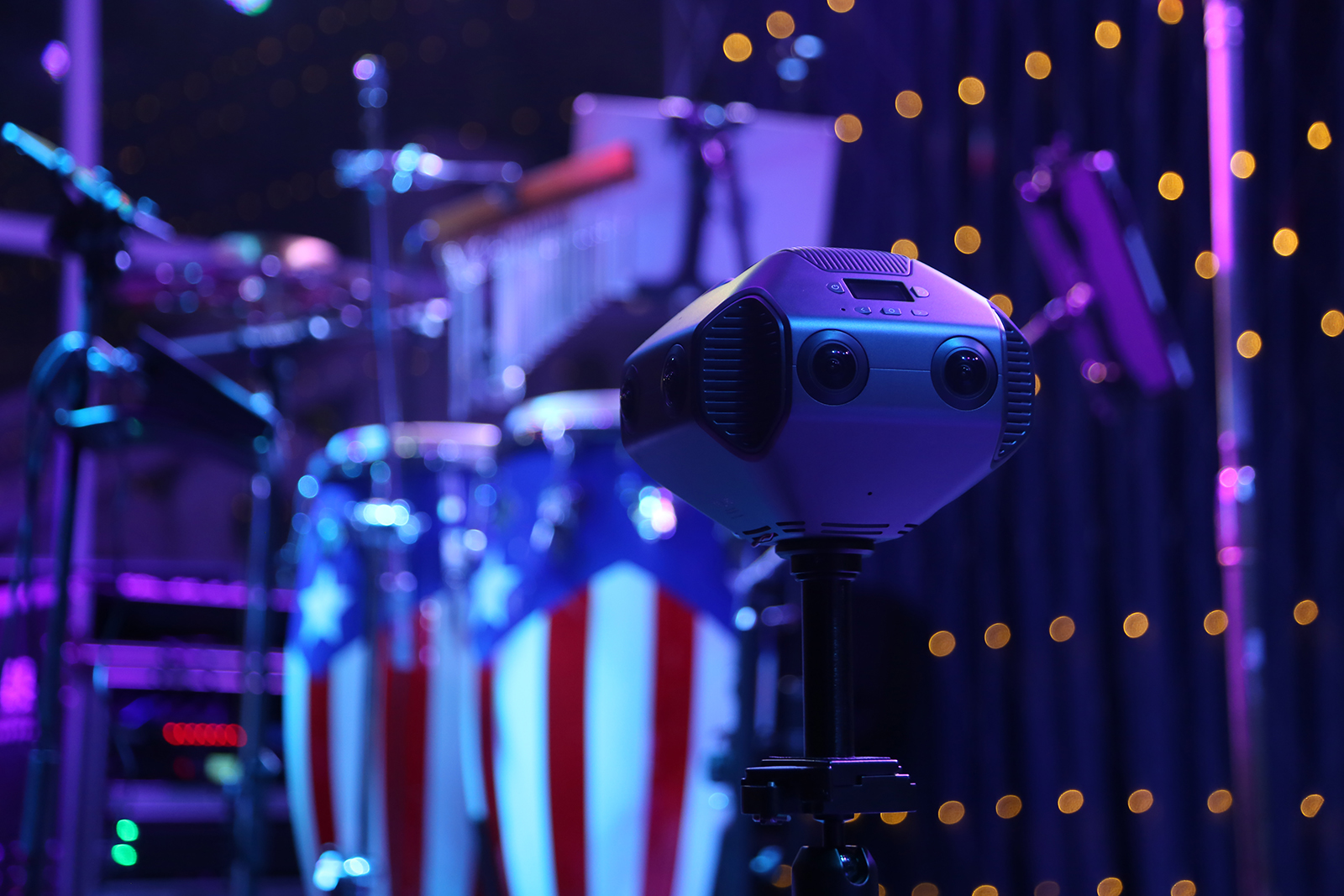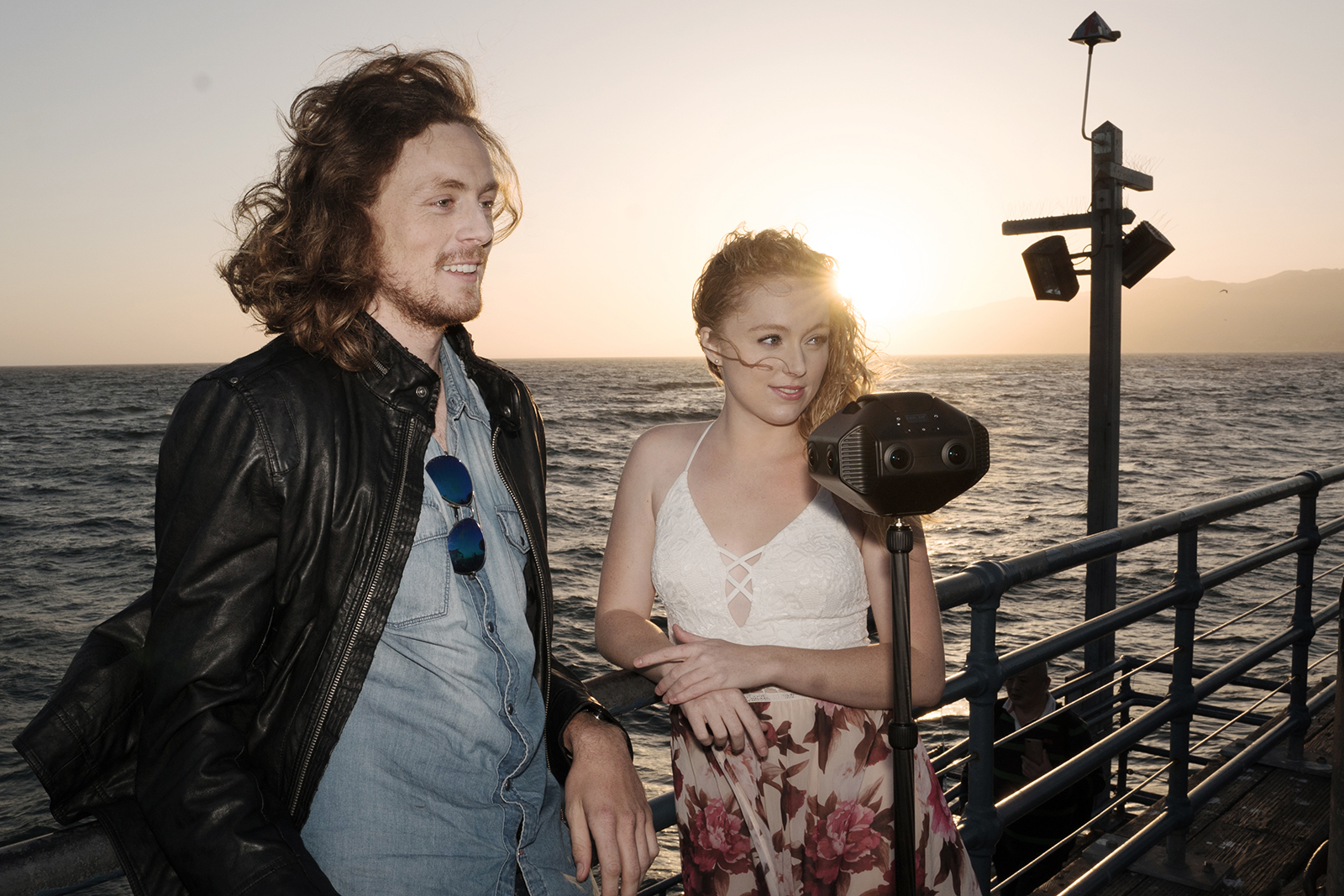Can artificial intelligence make a better virtual reality camera? A 2014 China-based startup is betting on it with Detu Max, which the company calls the first 3D 8K 360 VR camera with a built-in chip housing the camera’s A.I. technology. Designed as a pro-level camera, the A.I. allows the camera to recognize — and follow — the subject.
The Detu Max’s feature list reads like a list of photography buzzwords — there’s 3D, 8K, 360, VR, AI, HDR, RAW and stabilization all packed into a metallic body. That turned out to be enough to get the Detu completely funded in just ten minutes on Kickstarter, where the camera will continue to garner support until the campaign ends on July 28.
The Max has eight lenses wrapped around the outside of the camera body. Each pair of lenses has a similar placement as a pair of human eyes, allowing the camera to compare the perspectives from the right and left in each pair, enabling the camera’s 3D capabilities. With four pairs of lenses, the camera captures that immersive 360 perspective.
But the Detu Max isn’t the first pro-minded VR camera with lens pairs to shoot 3D. What sets the Max apart, according to Detu, is an A.I. chip built inside the body of the camera. That chip powers object tracking, which allows the camera to keep the subject within the front frame. While object tracking may not seem like a huge feature on a camera designed to shoot from every angle, Detu says the feature can be used while live-streaming so viewers always jump into the stream with a view of the subject first.
Detu says that Max is also capable of closer stitches compared to other models on the market. The multiple lenses on 360 cameras typically have trouble stitching close, but Max can stitch from about three feet (one meter). Others stitch about 10 feet from the lenses, Detu claims.
As a pro-focused camera, the Max captures 8K footage and 12K stills. Stitching is done in-camera, allowing for live-streams up to 4K 20 fps in 3D or 4k at 30 fps without the 3D using either an Ethernet cable or a 2.4G or 5G dual band Wi-Fi network. The camera also includes high dynamic range, a mode that captures more details in the lightest and darkest areas of the image. Photos can also be captured in RAW for better edits, and videos in the LOG format.
The Detu Max also houses a six-axis gyro stabilization system. The camera’s battery, however, is only rated for an hour of recording.
While the company says the features are designed with pros in mind, the company opted to keep the camera’s interface simple with only five buttons controlling the camera. The built-in wireless also allows for control through an Android and iOS to preview, edit, and share images.
The Max isn’t Detu’s first camera — the company also has a smaller handheld camera called the Twin, a 6K commercial camera called the F4, and an 8K 360 camera called the F4 Plus. The company’s Kickstarter success takes out some, but not all, of the risk associated with crowdfunding — if the remainder of the manufacturing process is successful, the company expects to start shipping in September. Pledges that include the camera start at $2,199, with an anticipated $3,599 list price.







